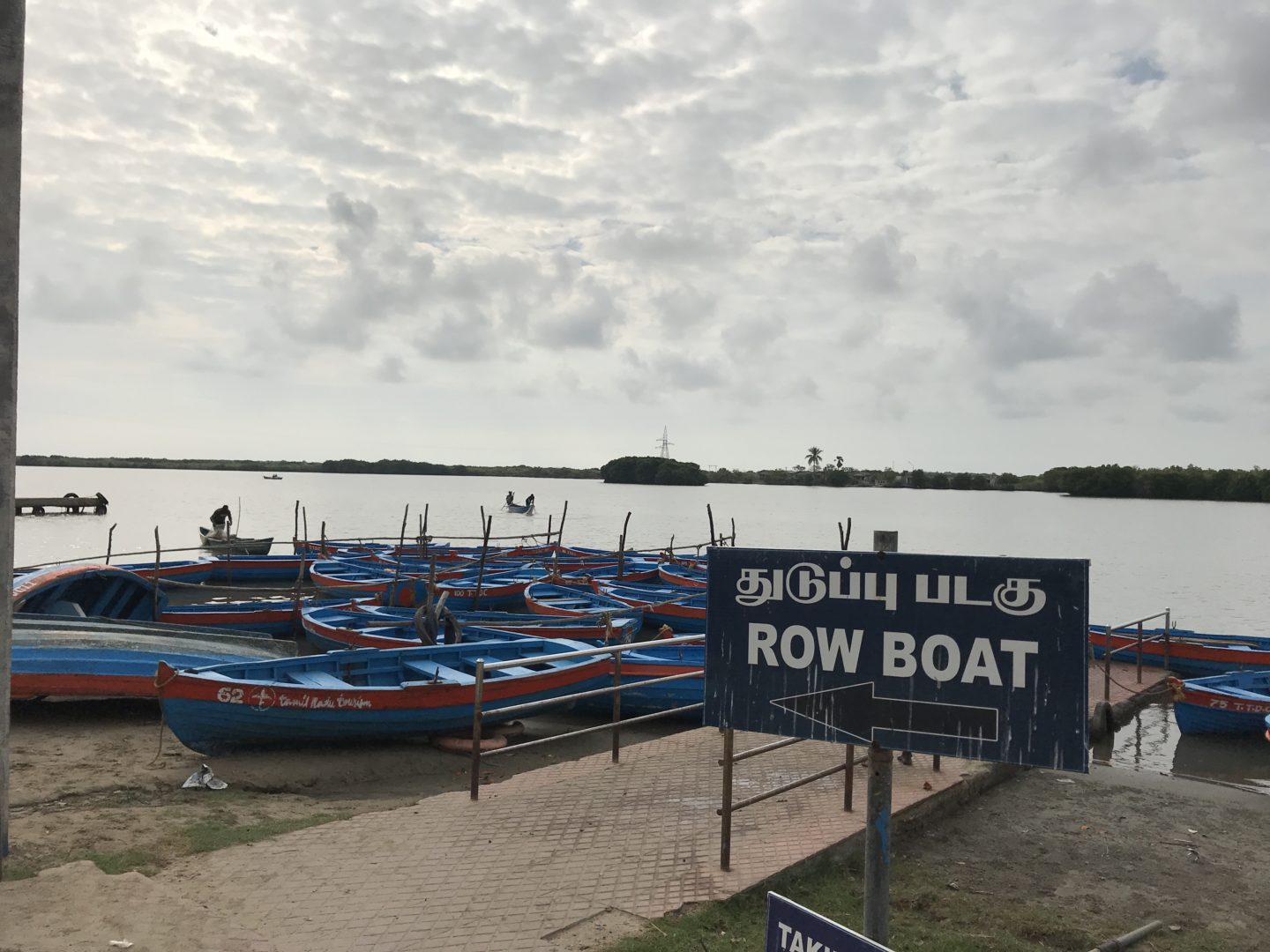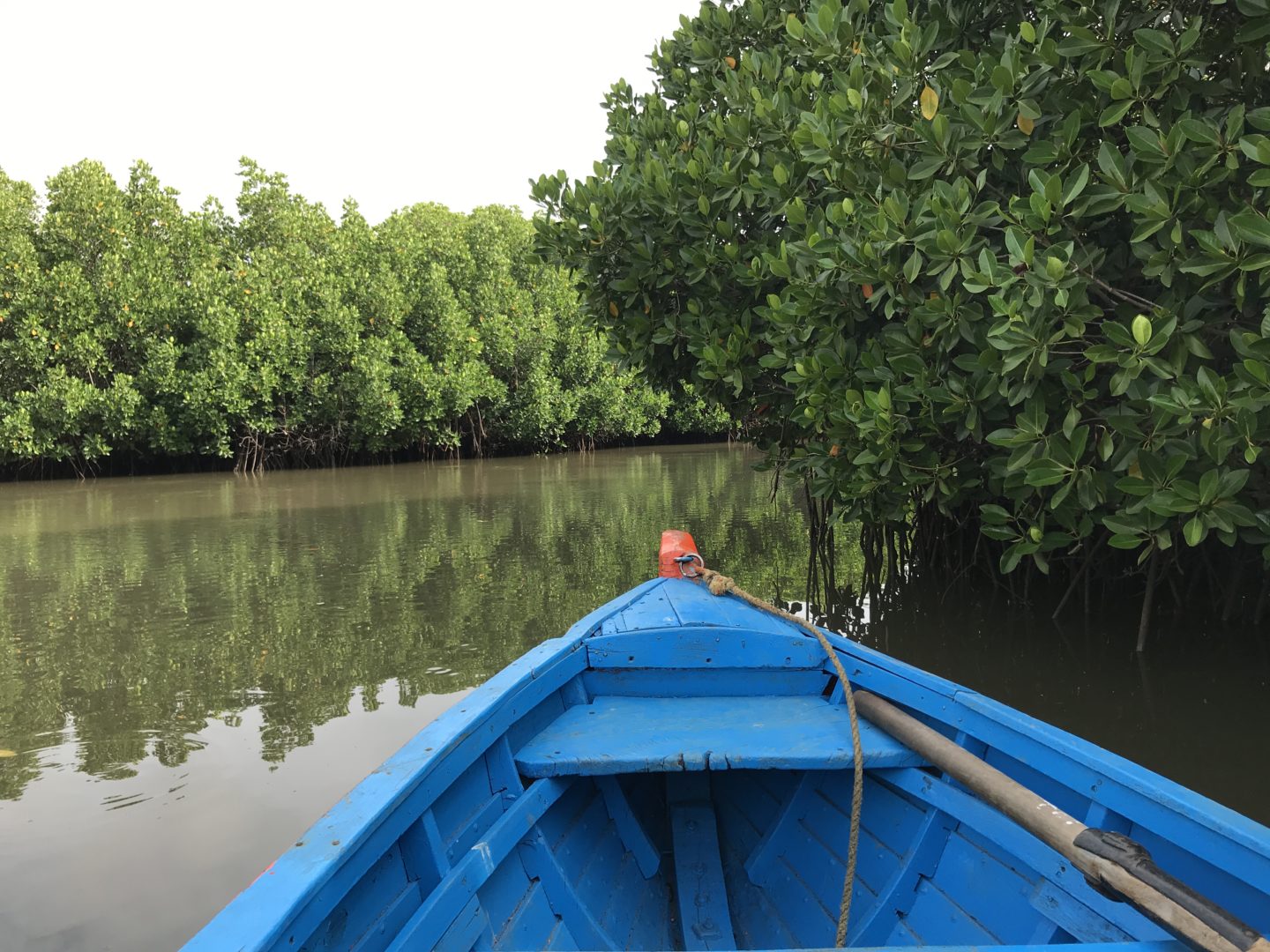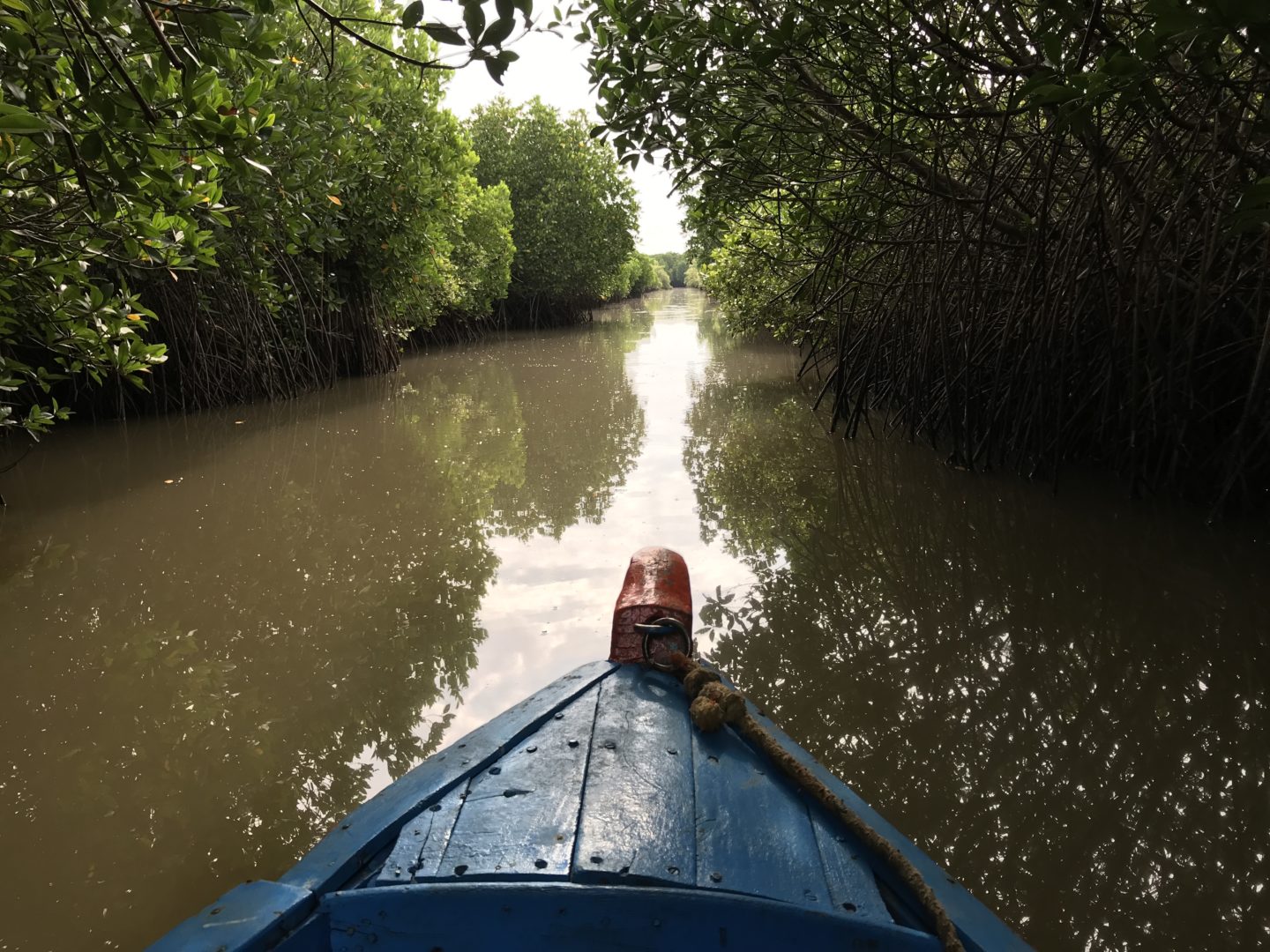“It will take months to explore every canal here,” says our boatman, as he gently pushes the boat along, his oar creating another barely audible splash in the gloopy water. “I’ve lived here all my life, and I’ve seen every inch of this place,” he goes on in a mix of broken Hindi-English. With 20 tourists visiting these mangrove forests in Pichavaram, Tamil Nadu, every day, he is slowly learning to converse in languages other than his native Tamil.

My tummy rumbled again as we turned into one of the creeks from the open water. We set out from Pondicherry at 6:30 am. After exploring the little French colony for over a week, we knew how unforgiving the sun would be as the clock struck 11, and we didn’t want to mar our experience grumbling about the heat. So a 215 km bike ride later, we stepped onto our row boat for a one-hour journey through the second largest mangrove forest in the world. Breakfast could wait.

Unlike the beaches in India, the mangroves of Pichavaram are not overrun with tourists yet. Not many people have even heard of it, which may be a good thing. The name ‘Sunderbans’ in Bengal seem familiar, thanks to their mention in school textbooks as the largest mangrove forest in the world, but Pichavaram, at second place doesn’t share the spotlight.

It’s alarming to hear that over a third of the world’s mangroves have been wiped out in the last 30 years, mainly because these shore-hugging forests are prime real estate for hotel properties. Mangroves provide critical shelter for young fish and coral (which in turn provides employment to fishermen). They absorb a whopping 50% more carbon dioxide than any kind of forest – playing a crucial role in combating climate change. AND they act as a buffer against tropical storms by absorbing the shock of the waves. Our boatman goes on to elaborate on how these very mangroves protected them during the tsunami of 2004.
Making our way through them is an eerie experience. They’re deathly still and soundless, save for the occasional plop of frog jumping in the water and a bird, spooked by our presence, taking to flight. The canopy of twisted branches above our heads hangs so low that it doesn’t allow one to stand, yet the occasional stream of light on the water lets you look down and see the murky shore bed, merely 3 feet below the boat.
As we get deeper and deeper, the boatman ceases to speak, and even the splash of the oar seems to be hushed. The greenery is overwhelmingly soothing and the hum of the gentle wind passing through seems magnified, as do the rustle of the leaves at arms distance, around and above us. It’s as spooky as it is serene – I’ve never experienced anything like it! It has the mystique of a place that’s undiscovered, but you will find one of nature’s most fascinating environments.
We learnt that there are over 700 islands, 4000 canals, 200 species of birds and various other forms of wildlife here. No tigers, however, but ask your boatman to point out animals he sees, that are almost invisible to the untrained eye, as you drift through the labyrinth of water channels.
The insanely dense maze of canals is mind-boggling and must be experienced to be believed. I can definitely say that this was one of my most memorable experiences. Not forgetting Pichavaram anytime soon!
TGG Tips on Exploring Pichavaram
- Boat tours through Pichavaram are managed by the Tamil Nadu Tourism Development Corporation. The cheapest rides are fairly useless, as they do not take you inside the mangrove forest. But if you choose this option, expect the boatman to ask for a huge tip – around Rs. 500 or more to take you inside the forest. It’s sad that they exploit tourists this way, but hopefully, a senior official can put a stop to it if they aren’t hand-in-glove with the operation
- Motorboat rides do not take you through the creeks, as they can only be maneuvered through manually.
- As you ride down the road towards the government-run Pichavaram boat tours, you will be accosted by several local fishermen who will promise a better deal or better experience than the TTDC. Don’t fall for it.
- Lastly, Pichavaram Mangroves are nothing short of sacred. Be quiet, and respect wildlife and their habitat. If you visit this awe-inspiring place, please be a responsible tourist! Don’t litter, and if you have trash, take it back with you
For more adventures, follow me on Facebook, Twitter and Instagram. Also, check out some epic things to do in Pondicherry here!
Bye!